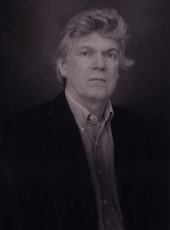
Sideline Slants: Eureka-reared writer scores with new book

Sideline Slants: Eureka-reared writer scores with new book
by Don Terbush (Jul 10, 1977)
Digitized by Jessica Suchman and Catherine Nissley.
Robert Whiting, Eureka High School class of '61, has written an interesting and widely acclaimed book "Chrysanthemum and the Bat." In it he describes the Japanese character through the common game of baseball.
"The very different way the Japanese approach the game mirrors their fundamentally different approach to life. This book is a way I can make my own contribution to cross-cultural understanding," he writes from his home in Tokyo.
Excerpts from the 247 page hard cover tome have appeared in numerous American magazines including Sports Illustrated and Sport.
In his introduction to the Japanese edition of "Chrysanthemum and the Bat", Frank Gibney notes "Among the ways there are of getting to know people, a study of the games they play is one of the most important. A well-informed look at a nation's sports and its sportsmen can often do more towards explaining a national character than volumes of doctoral theses about history or sociological characteristics. Bob Whiting has done this service for us all in writing this book. In all the years that Japanese have been playing baseball, along with Americans, the average American's response has been merely to nod and say the equivalent of 'interesting.'
"The Japanese baseball fan, while he displays the same kind of vague interest in the American game, has been watching his own variety of baseball so long, as to forget how deeply Japanese he has made his game. Bob Whiting has forced both parties to think twice and reviews some first impressions. He has taken the whole brassy, fascinating pastime of the Japanese and shown us exactly where or how from what we still think as of the original."
Decade in Japan
Whiting says the book is the result of nearly 10 years he spent living in Japan, "and watching the Japanese play baseball."
He adds "I gleaned most of my material for the book from first-hand experience, the Japanese media (I can speak and read Japanese) and from countless interviews with players. Among the prominent players who helped me with the book are George Altman, Daryl Spencer, Jim LeFebvre, Davey Johnson and Clete Boyer.
"Personally," Whiting continues, "I think it's a matter of time before the Japanese overtake the Americans. Japanese are more serious about the game. They train harder. There's hardly an aspect of the game they haven't studied with fanatical zeal. And you'd never catch a Japanese star holding out or jumping teams like so many Americans do these days. The team comes first, in Japan.
Whiting, the son of Mr. and Mrs. Sheldon Whiting of Eureka, spent a year at Humboldt State University. He then joined the Air Force and eventually wound up in Japan.
He received his discharge in Japan and subsequently graduated from a Japanese university – Sophia University in Tokyo. Since then he has made his living doing educational writing, in particular language readiness programs for Asian children. He has worked for Encyclopedia Britannica, Grolier International, and is presently writing for Time-Life Books in Tokyo.
The first part of the book deals with losing managers who take "vacations" instead of getting fired, a training regimen (year-round) that's more like Marine boot camp, star pitchers who burn their arms out for the team by the time they're 30, yet never think of making waves or holding out for more money, and teams that make formal apologies to their fans for losing games and umpires that regularly get punched in the mouth.
Oriental Jackie Robinson
Chapter 8 tells the story of Hawaiian Wally Yonamine – a kind of "oriental Jackie Robinson" since he was the first American to play in Japan after World War II. And Chapter 9 tells of "ugly Americans" like Poe Pepitone who do nothing but generate ill will. Chapter 10 descries the difficulties Americans have fitting in. Jim LeFebvre, the ex-Dodger, for example, was the first former major leaguer All-Star to be banished to the Japanese minors, for his "lack of fighting spirit." Daryl Spencer, the ex S.F. Giant infielder, was cheated out of a home run title by a band of xenophobic pitchers who didn't want a foreigner winning the title.
Finally, Chapter 12 describes Japan's efforts to gain baseball parity and establish a "real World Series."
Besuboru is truly the Japanese national game, with several daily papers devoted exclusively to it and the TV networks saturated with it.
Whiting's "Chrysanthemum and the Bat" is well written and hard to put down once you've started reading. We think you'll enjoy it as much as we did.
This work is licensed under a Creative Commons License.
Some rights reserved.
